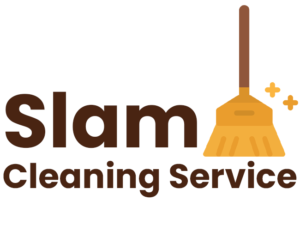There are a number of simple daily practices that can make a huge difference when it comes to the efficiency and longevity of your plumbing system. Let’s walk you through some of the practices that can help you keep your system in good shape.
- Use a Mesh Drain Cover
One of the simplest preventive measures you can take to safeguard your drains and pipes is to install mesh drain covers. Place a mesh drain cover over your sinks and shower drains to catch hair, debris, and other particles, preventing clogs from forming.
- Avoid Chemical Drain Cleaners
Although chemical drain cleaners might look like a quick fix for drain clogs, they are harmful to your pipes. Steer clear of chemical drain cleaners, as they can corrode pipes over time. Besides, they can be harmful to your health when they are inhaled or come into contact with your skin or eyes. Instead, use natural alternatives like baking soda and vinegar or seek professional assistance from a plumber in Warren.
- Watch What You Put Down Your Kitchen Sink
Be mindful of what goes down your kitchen sink. Avoid dumping food scraps, grease, cooking oil, and coffee grounds down your kitchen sink. Grease as a liquid may look harmless when you pour it down the drain, but it will eventually solidify inside the pipes when it cools down. Dispose of food scraps in compost or trash, rather than allowing them to clog your drains.
- Only Flush Waste and Toilet Paper Down The Toilet
Many of us are guilty of treating our toilets like a trash can. We tend to assume that anything that looks flushable will drain away smoothly into the septic tank or sewer system. The truth is, some of the seemingly harmless items we flush down the toilet can block the drain pipes and cause sewage backup. You should only flush waste and toilet paper down the toilet. Items like wet wipes, tissues, condoms, medications, cat litter, and feminine hygiene products can lead to blockages and plumbing issues.
- Brush Your Hair Before Showering or Bathing
Many people may not know this, but hair is a major contributor to clogged shower drains. When washed down the drain, hair can accumulate over time and form a stubborn mass, especially when it binds with grease and other sticky substances. It’s advisable to brush your hair before showering or bathing to reduce hair shedding and prevent strands from clogging your drains. Another preventive measure you can take to prevent hair from going down your shower drains is to install drain covers in showers and bathtubs.
- Check Your Water Pressure
Regularly check your water pressure to ensure it’s within a safe range. The normal water pressure for a home pipe system is between 30 and 80 psi. Excessive pressure can strain your plumbing system and cause leaks. You can test your water pressure using a water pressure gauge.
- Do Not Ignore Minor Plumbing Issues
Don’t overlook minor plumbing issues like dripping faucets or slow drains. Promptly addressing these concerns prevents them from escalating into major problems.
Need Professional Plumbing Service? Mr. Rooter Plumbing of Youngstown Is Here To Help
While these daily practices can help keep your plumbing system in tip-top shape, you’ll need the help of a professional plumber at some point. You can trust the skilled and experienced plumbers at Mr. Rooter Plumbing of Youngstown to provide you with top-notch services. From drain cleaning to leak repair, sewer line repair, garbage disposal repair, water line replacement, and toilet repair, we do it all.




